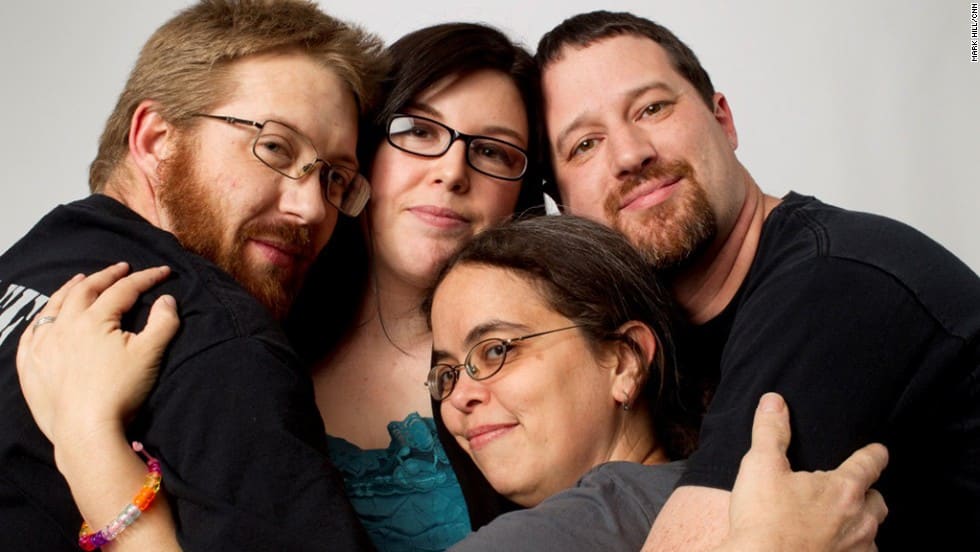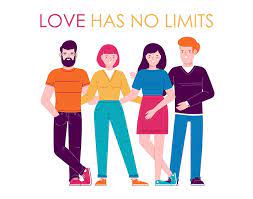
Welcome to the Center for Healthier Relationships, Individuals, & Sexualities (CHRIS). Let us help you find the answers you have been seeking in your life. We believe everyone should be met with compassion and care. Our team helps clients process challenges related to family concerns, trauma, depression, anxiety, social struggles, men’s issues, and sexuality concerns in order to help clients move forward in their lives.



Concerns You Might Be Considering Bringing to Therapy
Are you looking for a therapist who specializes in LGBTQ populations? Perhaps you’re a gay couple who has had a bad experience working with cis het therapists who do not understand the LGBTQ experience.
What if you are not part of the LGBTQ+ community or do not know if you are part of the community? Maybe you are questioning aspects of your gender, sexual orientation or sexual identity?
Perhaps your a couple struggling with intimacy. Maybe you are not struggling with intimacy, but with working through challenges of a a non-monogamous couple or face judgement from others who cannot relate.
You may have been diagnosed with a neurodivergence diagnosis such as Attention Deficit Hyper Activity Disorder (ADHD) or Autism Spectrum Disorder (ASD) or a personality disorder such as Borderline Personality Disorder (BPD).
Maybe you simply are unsure of your place in the world or are experiencing a challenging life transition.
What if you want a therapist who understands the male experience?
Do you need to focus on sex therapy while still working with another therapists?
If any of these fit you, the team of therapists at the Center for Healthier Relationships, Individuals, & Sexualities (CHRIS) welcome you to our page and hope you will find a therapist who may be a good fit for you within our team. To learn more about the team, check out the About page.
If our team is not a match, we still encourage you to reach out to either one of our referral networks or contact us to see if we might be able to provide assistance with finding a provider.
Why Attend Therapy?
Therapy helps individuals, couples, and families find better ways to manage life stresses, transitions, family dynamics, mental health diagnoses, relationship issues, and sexuality concerns. We all have the power to grow, and therapy can be a valuable process in this development. Therapy is often much like other journeys in life. Goals act as a starting point, but those goals may require changes as one progresses through the process. Both modality and the therapeutic relationship help set the tone for this process.
Therapy Offerings
Therapy helps individuals, couples, and families find better ways to manage life stresses, transitions, family dynamics, mental health diagnoses, relationship issues, and sexuality concerns. We all have the power to grow, and therapy can be a valuable process in this development. Therapy is often much like other journeys in life. Goals act as a starting point, but those goals may require changes as one progresses through the process. Both modality and the therapeutic relationship help set the tone for this process.
Therapy Types
Couples Therapy – Helping couples navigating relationship challenges.
Individual Therapy – Individual therapy focuses on helping to process interpersonal and intrapersonal challenges.
Family Therapy – Family therapy helps family members learn to work together and support one another.
Group Therapy – Therapy tailored to help clients feel so not alone by taking to others who can relate to their struggles while having a skilled facilitator provide inquiry and insight.
Therapy Specialties
LGBTQ Therapy – Affirmative therapy conducted with the knowledge of what is it is like to face challenges as part of ones identity or simply being supported for other issues while having an LGBTQ identity without fear of judgement.
Sex Therapy – Helps couples manage intimacy concerns, work through sexual dysfunctions, and process issues related to gender and sexual orientation.
Male Affirmative Therapy – therapy which focuses on processing issues related to identifying and/or being socialized as a male person, particularly work focused on increasing emotional awareness and improving communication.
We also offer therapy related to issues, such as depression, anxiety, ADHD, ASD, and personality disorders. Please see a full list of specialities on our About page or check out individual provider profiles to gain more insight into their areas of focus.



In-Person vs. Virtual Therapy
In person and virtual therapy both provide effective therapeutic interventions. Virtual therapy has been found in studies to be as effective as in person. Please speak to your therapist regarding their preferred virtual platform. All platforms used by our therapists are HIPPA compliant. Below you will find a list of a few pros and cons to each.
Many providers with CHRIS provide both virtual and in-person and may be willing to be flexible as to whether you need in-person or virtual at a given time, to meet your needs
In-Person Therapy
Pros
- Increase privacy, not having children, spouses, animal interrupt
- In-person connection with therapist
- Not having to use a computer for another virtual meeting
- Being able to leave some of the stress which may come from therapy at the office
- Clinician has increased ability to read body language which can inform assessment and processing of concerns
Cons
- Time to get to an office
- Parking
- Increase risk of exposure to illness while in office
Online/Virtual Therapy
Pros
- Easy and convenient – no travel time or need to find parking
- Decrease risk of COVID or other sickness exposure
Cons
- May miss in-person feel
- Requires private area which may not be possible, leading to regular interruptions or not feeling an ability to speak openly
- May feel exhausting for those who are already doing a lot of virtual meetings
- May be hard for some people to switch off from work mode
- Therapist is not able to see entire body which can hinder seeing some body language which can help with understanding concerns



Getting Started
To learn more about the team, please review the therapist page or review the individual provider profiles by navigating the menus at the top of each page. If you know who you want to work with, you may contact the therapist directly through the phone number and/or email address provided.
If you are unsure who you would like to work with, you can use the contact button to navigate to the Contact, Location, & Hours page. From there you can complete a general inquiry form. You can also contact the Executive Director of CHRIS, Dr. Chris Wilson, by phone at 484-469-8705 or via email at cwilson@centerforhealthierrelationships.com.
You have the power to make change in your life. Let us help support you through the change(s) you want to see in your life.


